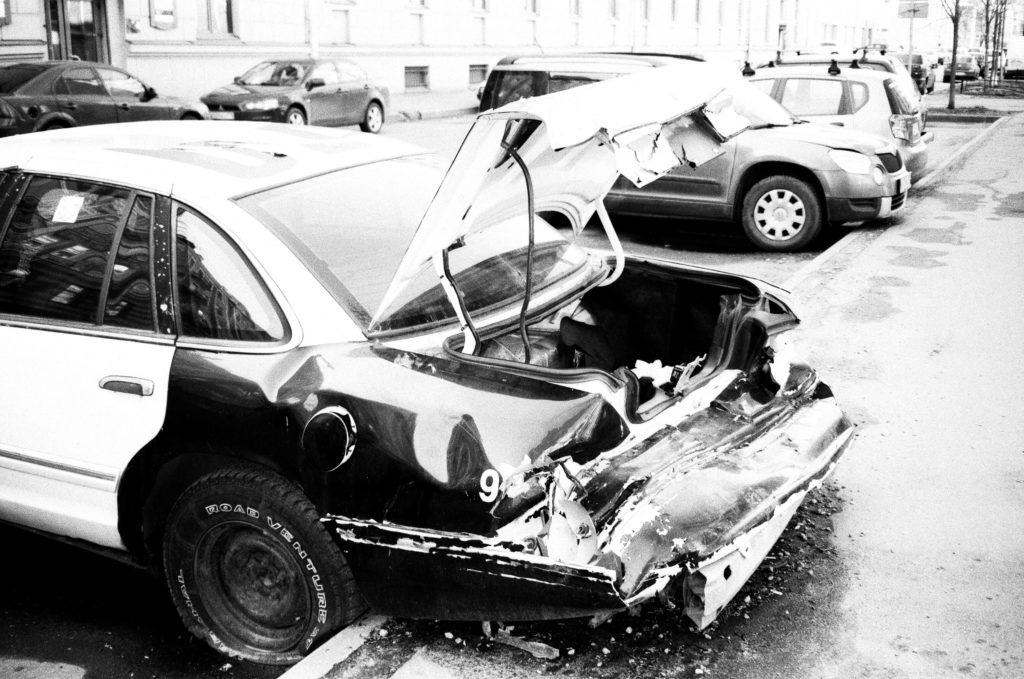Every year, too many people die in car accidents. The loss of a family member is devastating both emotionally and financially if the family member was either the sole income earner or one-half of a two income earning family.
In Pennsylvania, a wrongful death claim arises if it is the result of negligence, reckless behavior, or violent behavior of another individual. This will apply in a fatal car accident if the cause of the accident was from:
- Distracted driving, including both texting and driving and engaging in other unsafe behaviors while behind the wheel;
- Reckless driving, including excessive speeding, running red lights, and failing to yield; or
- Driving while intoxicated.
Damages for a Wrongful Death lawsuit are set forth by Pennsylvania statute and are divided into two related but unique causes of action: a wrongful death action and a survival action.
A) Wrongful Death Action
According to § 8301, the wrongful death action seeks to compensate the decedent’s family members for the economic loss caused by the decedent’s death and any income the decedent would have earned had he or she lived. These damages include:
1) Funeral and burial expenses;
2) Hospital and medical expenses;
3) Estate administration expenses;
4) Lost wages and benefits – this includes the amount the deceased would have been expected to contribute to the family’s support had he or she lived; and
5) Compensation for the loss of household services, society, and comfort provided by the deceased, including the provision of physical comforts and services and moral guidance, comfort, and support.
Damages for loss of comfort, companionship, and guidance are meant to compensate the surviving family members for their losses related to the wrongful death. Thus, these damages are only available if the victim left a surviving spouse, children, or parents.

Damages for funeral and burial expenses, medical expenses, and estate administration expenses, however, compensate the estate for the costs related to the wrongful death. The personal representative may seek these damages in court even if there are no surviving spouse, children, or parents.
The beneficiaries’ share of the wrongful death award are determined by the intestacy laws of Pennsylvania, which determine how an individual’s estate passes if he or she dies without a will. The wrongful death portion will pass according to intestacy laws even if the decedent did execute a will prior to his or her death which is as follows:
1) If there was a surviving spouse and no children or parents – everything goes to the spouse.
2) If there was a surviving spouse and a surviving parent but no children – the spouse will get the first $30,000 and half of the remaining settlement, the courts will divide the remaining portion of the settlement between the deceased’s parents equally.
3) If there was a surviving spouse and surviving children – the spouse will get the first $30,000 and half of the remaining settlement, and if the children belong to the surviving spouse, the courts will divide the remaining portion of the settlement between the children equally.
4) If there were surviving children and no spouse – the children will get the entire settlement, divided equally amongst them.
5) If there were surviving parents and no children or spouse – the parents will share the settlement equally.
6) If there were no surviving spouse, children, or parents – courts will divide the settlement amongst the deceased’s brothers, sisters, or nieces and nephews.
The wrongful death award is distributed directly to the beneficiaries and not the Estate, and therefore, not subject to Pennsylvania Inheritance tax or the Federal Estate tax and cannot be used to repay creditor’s of the Estate. It is also not considered income to the beneficiaries and not subject to income tax.
B) Survival Action
In contrast, the survival action, as defined in 42 Pa. C.S. § 8302, is grounded in the injury to the other person, not in the fact that he or she may have died. Therefore, a survival action continues in the decedent’s personal representative. This cause of action provides a means for an aggrieved personal representative to assert causes of action that the decedent (the party who has died) would have had been entitled to had he or she survived the incident or act. The damages stem from the rights of action possessed by the decedent at the time of death. The damages awarded in a survival action include the loss of earnings from the date of the injury to the date of death; loss of future earnings, which are reduced by the cost of personal maintenance (living expenses to maintain life) of the decedent; loss of retirement income; pain and suffering of the decedent; loss of life’s pleasures; and medical, hospital, and nursing expenses.
Since the decedent cannot personally recover, the Estate is the beneficiary for proceeds recovered under the survival actions. Proceeds from the survival action are distributed to the beneficiaries per a will or per laws of intestacy if no will, as set forth above.
Unlike the wrongful death action, any proceeds from a survival action are distributed to the beneficiaries through the Estate and are subject to inheritance taxes, estate and income taxes.
In Pennsylvania, the statute of limitations on a wrongful death lawsuit is two years. This means that if more than two years has passed since the time of your family member’s death, you can no longer pursue a lawsuit. On the other hand, if you are within that two-year limit, you can still file for a wrongful death lawsuit. While there may be some exceptions to this two-year limit, it’s important to file a wrongful death claim as soon as possible in order to ensure that the courts will hear the case, and to ensure relevant evidence is preserved and collected promptly.
The success of a wrongful death claim due to a fatal car accident needs two main features:
1) It needs to be caused by someone else. In order for a family to recover money in a wrongful death claim, the accident would have had to be caused by someone other than your loved one who died in the accident. This could be the driver of another vehicle, the auto maker, or the driver of the car your loved one was riding in. In other words, someone other than the deceased had to have acted in a negligent manner to have caused the accident.
2) There must be sufficient Insurance. Sad to say, but many wrongful death claims due to a fatal car accident fail because the driver who was at fault had inadequate insurance, or not enough personal assets to fully compensate the other party. Your attorney must know where to look for any available insurance or other assets from which to recover the full value of your wrongful death claim.
Even if the driver of another vehicle was not at fault, at fault but not insured, or the accident was a hit and run, there are quite a few other parties your lawyer should consider in order to recover the compensation that your family is entitled to. Some examples are:
- Under or Uninsured Insurance: Your loved one may have insurance that protects them or their loved ones from being injured or killed by an uninsured or underinsured driver.
- Automobile Manufacturer: If the car your family member died in failed to adequately protect them, your family can recover compensation from the manufacturer of that automobile.
- Dramshop Insurance: If your family member was killed by a drunk driver, you may be able to recover money from the bar or home where they were last served alcohol.
- The State/City/Town/Municipality: If their death was caused by poorly maintained roads, improper signage, or private homeowners whose shrubbery blocked drivers’ view.
There is no amount of compensation that can make up for the death of a family member, and thinking about it at such an emotional time can be difficult. It is important that you seek legal advice as soon as possible, as you only have two years from the time of death to file a wrongful death lawsuit in Pennsylvania. The Thistle Law Firm is experienced at handling these claims. If you lost a family member or loved one in an auto accident the attorneys at the Thistle Law Firm are here to take your call at 215-525-6824.

Dan Thistle grew up in Montgomery County, Pennsylvania and is a graduate of St. Joseph’s Preparatory School and the University of Pennsylvania. After graduating from Penn, Dan followed in his father’s footsteps and attended the Villanova University School of Law. In October, 2006, he was privileged to join him as a member of The Thistle Law Firm.

